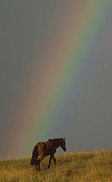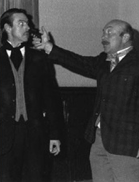Ross Barrett – October 8 2017
World Mental Health Day – October 10 2017
 Ross is a playwright and retired scientist. Over a career spanning almost 40 years, Ross held research positions at the University of Western Australia, University of Frankfurt, Melbourne University, the Australian National University, and also the Defence Science and Technology Organisation (DSTO) in Adelaide. In addition to over 60 scientific research papers, Ross has written plays for the stage, seven of which have been produced in professional partnerships in Adelaide. His produced plays include Suns of Home, Love in the Chook House, Billy Hughes, Footsteps and How We Beat the Favourite, which follows the life of Australia’s first national poet, Adam Lindsay Gordon, from the time of his exile to Australia in 1853 to his tragic suicide 17 years later at the age of 36. Ross is currently a Committee Member of the South Australian Branch of the Australian Writers’ Guild (AWG), and a past Chair of the South Australian Writers’ Theatre (SAWT).
Ross is a playwright and retired scientist. Over a career spanning almost 40 years, Ross held research positions at the University of Western Australia, University of Frankfurt, Melbourne University, the Australian National University, and also the Defence Science and Technology Organisation (DSTO) in Adelaide. In addition to over 60 scientific research papers, Ross has written plays for the stage, seven of which have been produced in professional partnerships in Adelaide. His produced plays include Suns of Home, Love in the Chook House, Billy Hughes, Footsteps and How We Beat the Favourite, which follows the life of Australia’s first national poet, Adam Lindsay Gordon, from the time of his exile to Australia in 1853 to his tragic suicide 17 years later at the age of 36. Ross is currently a Committee Member of the South Australian Branch of the Australian Writers’ Guild (AWG), and a past Chair of the South Australian Writers’ Theatre (SAWT).

Sample image
Rainbows Singing
© Ross Barrett: rossweb20@gmail.com
Rainbows Singing follows two stories separated in time by 150 years. The first deals with the life and poetry of Australian poet and horseman, Adam Lindsay Gordon. Gordon eventually fell victim to his manic depression, and committed suicide with a service rifle in the scrub behind Brighton Beach, Victoria on 24th June 1870 …. The second protagonist is a modern-day teenager, James, who shares with Gordon a love of sport, a desire to be a writer, and a burgeoning mental illness. Initially, Gordon’s and James’s stories proceed in two separate time zones, but when James sets out to write a novel based on Gordon’s life, his delusions become severe, and the present and past merge together in his mind, and the play takes a step into the surreal. Urged by his mother into treatment for his illness, James fears that he may be forced to choose between his medication and his creative talent, to him the most important thing in life. Rainbows Singing has received extensive workshopping, and is production-ready. It provides powerful parts for several young actors. – www.rfbarrett.com

Sherlock Holmes and the ‘Coming of the Fairies’
Australian Script Centre, 1994; 100 minutes
1 female, 3 male; (Author’s note: Doublings are an essential part of the play, and are not optional)
Audience age: young adult, adult
This play is a bizarre comedy that commences as a conventional Sherlock Holmes melodrama. The comfort of this traditional genre is shattered when the creator of Sherlock Holmes, Arthur Conan Doyle, barges into the plot. What we see is not Sherlock Holmes battling with Professor Moriarty, but Doyle struggling with his desire to be recognised as a major literary figure. A battle of the minds follows between Holmes and Doyle over who created whom. The resolution questions whether it is authors or their characters who are the most lasting, and explores whether what we do is more important than what we are.
